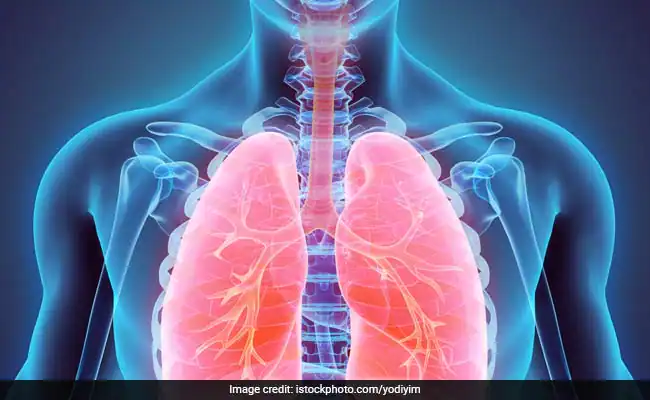
Introduction
In an increasingly urbanized world, exposure to pollution has become a reality. Air pollution, in particular, can have a detrimental effect on respiratory health. As the primary organ responsible for respiration, our lungs are particularly vulnerable to the harmful effects of pollution. In this comprehensive guide, we’ll explore effective strategies to protect your lung health and minimize the effects of pollution.
Understand the risks
Types of pollutants and their sources
Before taking protective measures, it is essential to understand the types of pollutants and their sources.
Common pollutants: particulate matter, nitrogen dioxide, ozone, and VOCs
Common pollutants include particulate matter (PM2.5 and PM10), nitrogen dioxide (NO2), ozone (O3), and volatile organic compounds (VOCs).
Various sources: vehicles, industry, indoor activities
Sources range lungs from vehicle emissions and industrial processes to indoor activities such as cooking and smoking.
Monitor air quality
Using reliable Air Quality Index (AQI) apps and websites
Take note of your local air quality.
Use the reliable Air Quality Index (AQI) app or website to get real-time updates on pollution levels.
Real-time updates for informed decision-making
This information can help you plan outdoor activities and adjust your routines accordingly.
Limit outdoor exposure
Protecting yourself during times of high pollution
On days with poor air quality, limit outdoor activity, especially during periods of peak pollution.
Best time for outdoor activities
Early morning or late evening can provide relatively clean air for exercise or leisure.
Create a clean indoor environment
Furnishing living space with proper ventilation
Since indoor air pollution can be equally harmful, ensure proper ventilation in your living spaces.
Using HEPA filters in air purifiers
Use air purifiers equipped with HEPA filters to trap particles and reduce indoor pollution.
Choose a protective mask
Importance of fine particle filtering
In heavily polluted areas, wearing a mask specially designed to filter fine particles may provide some protection during outdoor lungs activities.
Effectiveness of N95 masks
N95 masks are particularly effective in this regard.
stay hydrated
The role of hydration in maintaining respiratory tract health
Drinking enough water helps keep your respiratory tract moist and promotes efficient mucus production, helping flush out pollutants and irritants.
Maintain a healthy lifestyle
Strengthening the immune system against pollution
A strong immune system can better deal with the effects of pollution.
A balanced diet, exercise, stress, and smoking
Eat a balanced diet rich in antioxidants, exercise regularly, manage stress, and avoid smoking to support overall lung health.
Plant indoor greenery
Air purifying power of houseplants
Some houseplants, such as snake plants and peace lilies, have air-purifying properties.
Improving indoor air quality
They can help filter indoor air and improve overall air quality.
Use natural cleaning products
Avoid harmful VOCs with natural alternatives
Traditional cleaning products can release harmful VOCs into the air.
Reduction of indoor pollutants
Choose natural cleaning options to reduce indoor pollution levels.
Advocate for change
Participating in local initiatives for cleaner air
Participate in local initiatives that promote clean air and advocate for policies that address pollution.
Pushing for pollution-reducing policies
By raising awareness and pushing for positive change, you contribute to a healthier environment for everyone.
Conclusion
A multifaceted approach to protecting lung health
Protecting your lungs from pollution requires a multi-pronged approach that includes understanding the risks, monitoring air quality, and adopting healthy habits. By being proactive and making informed choices, you can reduce your exposure to pollutants and protect your lung health. Remember, a clean environment is not only beneficial for your respiratory health but also for the health of the wider community.
Common pollutants include particulate matter (PM2.5 and PM10), nitrogen dioxide (NO2), ozone (O3), and volatile organic compounds (VOCs), which can originate from vehicle emissions, industrial processes, and indoor sources.
Air pollution can irritate the respiratory system, inflame the airways, and increase the risk of respiratory infections, asthma, chronic obstructive pulmonary disease (COPD), and other lung-related diseases.
You can monitor air quality using reliable Air Quality Index (AQI) apps or websites that provide real-time updates on pollution levels in your area.
Yes, wearing a mask designed to filter fine particles, such as an N95 mask, may provide some protection against contamination during outdoor activities in heavily polluted areas.
Maintaining a healthy lifestyle, including a balanced diet, regular exercise, stress management, and avoiding smoking, can strengthen the immune system and reduce the impact of pollution on lung health.
We are mobile
Get quick access to services and 24/7 assistance for all your requirements by downloading our app.
Intricate dance of inhalation and exhalation
endless ballet of inhalation and exhalation, delivering oxygen to every cell while expelling waste gases. It’s a complex dance orchestrated by nature, but even the most delicate choreography can go awry over time. Dr. Emily Williams, an eminent pulmonologist, highlights, “
Lung sensitivity and sensitivity
Lungs are important organs, but they are sensitive and susceptible to various diseases. Routine check-ups are like regular tune-ups for your car – they help catch problems before they become major problems.”
The silent intruder: early detection of lung disease
Importance of early detection
One of the most compelling reasons for regular lung check-ups is the early detection of lung disease. According to James Miller, a renowned pulmonologist, lung conditions including asthma, chronic obstructive pulmonary disease (COPD), and even lung cancer can develop subtly, exhibiting only minor symptoms until they reach an advanced stage.
an advanced stage.”
Silent development of lung disease
Early detection significantly improves treatment outcomes and quality of life. With modern diagnostic tools, such as chest X-rays, pulmonary function tests, and even advanced CT scans, potential problems can be identified before irreversible damage is done.
Air pollution can irritate the respiratory system, inflame the airways, and increase the risk of respiratory infections, asthma, chronic obstructive pulmonary disease (COPD), and other lung-related diseases. Lifestyle choices and their effects
Armed with the knowledge gained from routine check-ups, individuals can adopt healthy habits and create a lung-friendly environment, ultimately reducing the risk.